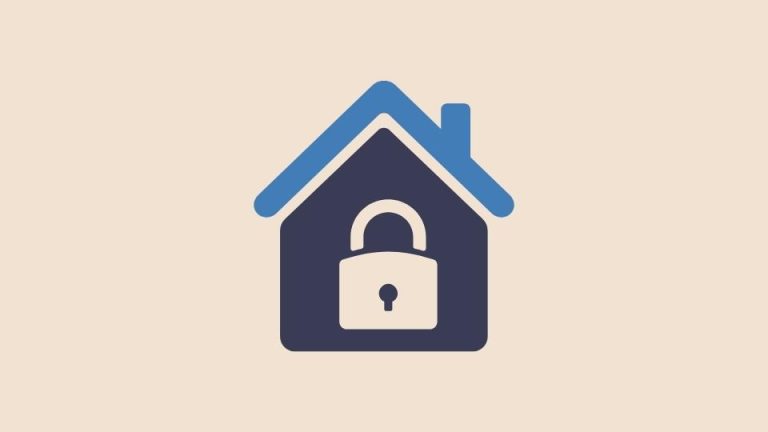Are Landlords Responsible for Pest Control in Texas?
As a homeowner or landlord, stationing yourself in the spectacular state of Texas comes with its fascinating mixture of cultures and picturesque landscapes. However, there’s a challenging facet that can occur when you hold these roles—defending and maintaining your property against pests.
If you’re pondering over questions like are landlords in Texas responsible for pest control? Or what pests are owners commonly struggling with in the Lone Star State? Then you’ve unearthed the right discussion. This article aims to equip you with valuable knowledge about your responsibilities and guidelines regarding pest control in Texas rental properties.
As a landlord, your responsibility spans beyond just providing a roof for your tenants. Ensuring your property is pest-free is a crucial part of sustaining a conducive and healthy environment for your renters. In Texas, laws concerning pest control for landlords and renters exist, but the specifics can get a tad complex. This article delves into those details.
- Legal responsibilities: Every landlord is obligated by law to perform certain duties. We’ll peddle through the legal intricacies surrounding pest control in Texas.
- Pest control services requirement: Are you expected to provide pest control services to your tenants? This section will shed light on this aspect.
- Common pests in Texas: Understanding your opponents is half the battle. We’ll take you through the roster of pests that usually beset properties in Texas.
- Pest control costs: Can you pass on pest control costs to your tenants? We’ll explore what Texas law says about this.
- Guidelines and regulations: The final facet of our exploratory dive will discern specific regulations or guidelines for landlords in Texas regarding pest control.
With years of combined experience in managing properties in Texas, we have garnered a wealth of knowledge to share with you. Whether you’re a seasoned landlord or a landlord-to-be, this guide offers a wealth of knowledge to help you navigate the issues of pest control in your rental property. Let’s fire off!
What are the legal responsibilities of landlords regarding pest control in Texas?
In Texas, landlords have a duty to provide a livable environment for their tenants, which includes keeping the property free from pests. This doesn’t just extend to the start of a lease, but throughout the tenancy. The Texas Property Code, Section 92 states that Landlords have specific legal obligations to ensure the property is clean, sanitary, and fit for human habitation.
However, if pests were introduced to the property due to the behavior or negligence of the tenants, the landlord may not be responsible for dealing with the pest problem. Examples of such behaviors could include a tenant leaving food out, thus attracting pests, or bringing in furniture that’s infested with bed bugs. In these instances, the responsibility might fall onto the tenant to resolve the problem. This is often outlined in the lease agreement, thus it’s crucial for both tenants and landlords to understand these terms.
Please note, it is important to seek legal advice if you’re unsure about your obligations or rights in a particular situation.
Additionally, landlords are usually required to respond to pest control requests in a timely fashion, typically within seven days. Failing to do so could lead to penalties or legal action from the tenant.
Texas landlords are also expected to treat the matter of pest control seriously and are typically required to hire professionals for the extermination. DIY solutions can often result in incomplete extermination, leading to a recurrence of the problem.
Overall, the goal is to ensure a safe and habitable living environment which includes effective pest control. The responsibility for this falls primarily on the landlord, with some exceptions regarding tenant behavior. In all cases, clear communication between parties is key, and lease agreements should outline responsibilities to ensure understanding from both parties from the start.
Are landlords required to provide pest control services to tenants in Texas?
Are you a tenant in Texas grappling with a pest problem? You might be wondering whether your landlord is legally obligated to handle this issue. Let’s delve into the law and its interpretation.
According to the Texas Property Code, landlords are indeed required to make ‘reasonable attempts’ to rid their rental properties of pests such as roaches, rodents, and bedbugs. This is seen as part of their duty to provide safe, sanitary living conditions for their tenants. However, there are circumstances where this may not apply.
- If you’re the cause: If tenant behavior or lack of cleanliness has caused the infestation, then you may be responsible for the cost of treatment. For instance, if you’ve left food out attracting pests or your pet brought in fleas, you’re likely on the hook for the associated pest control costs.
- Single-family homes and duplexes: Landlords are generally not responsible for pest control in single-family homes and duplexes unless they’ve failed to perform their duties in a way that led to the infestation, such as not repairing a hole in the wall that let rodents in.
- Stated in Lease: The lease agreement might stipulate that the tenant is responsible for pest control. However, such a clause couldn’t override the landlord’s duty to provide safe, habitable living conditions.
It’s also worth noting that while the law doesn’t explicitly state that landlords must hire professional pest control services, doing so is usually the best way to ensure the problem is thoroughly resolved. Besides, certain severe infestations like bedbugs or termites can require professional treatment.
Remember, careful documentation of any pest issues and communication with your landlord is key to realizing an apt solution. Notify your landlord about the issue in writing and, if required, you may have to take further action as per the Texas Property Code.
What types of pests are commonly encountered by landlords in Texas?
As a landlord in Texas, it’s not uncommon to encounter a wide variety of pests. This is primarily due to the state’s varying climates, expansive rural areas, and diverse habitats. Given the adverse effects pest infestations can bring, from property damage to health concerns, it’s essential to know which pests are most commonly encountered and pose potential risks.
Here is a list of some of the pests commonly encountered by landlords in Texas:
- Cockroaches: Known for their resilience and rapid reproduction, cockroaches are among the prevalent pests in Texas. They can cause various health issues due to their potential to spread diseases and trigger allergies and asthma.
- Rodents: Mice and rats are common, especially in older buildings with more entry points. These pests pose significant health risks as they can contaminate food sources and living areas with harmful pathogens.
- Bed Bugs: These tiny, sneaky pests cause discomfort by feeding on human blood, usually at night when people are sleeping. They infestations can quickly spread in apartments and multi-unit buildings.
- Termites: These pests are responsible for significant property damage. They can compromise the structural integrity of the building, making it unsafe for residents.
- Ants: While not as damaging as some other pests, certain types of ants, like fire ants, can cause discomfort and injury through painful bites.
- Mosquitos: In certain regions of Texas, mosquitos can pose a serious health risk due to their ability to transmit diseases, including the West Nile virus and Zika virus.
Remember, regularly scheduled pest inspections can help to identify possible infestations early, helping to mitigate the potential damage and health risks associated with these pests.
Can landlords pass on the cost of pest control treatments to tenants in Texas?
Whether a landlord in Texas can pass on the cost of pest control to tenants primarily depends on the terms laid out in the lease agreement. However, the general rule here is quite simple: if the pests were present at the commencement of the tenancy, it’s usually the landlord’s responsibility to cover the cost of extermination. On the contrary, if a lack of proper sanitation by the tenant leads to an infestation, then the cost can be passed on to them.
Now, let’s delve into this topic a bit more:
- Lease Agreement: The lease agreement should clearly state who is responsible for pest control costs. Landlords sometimes include a clause where tenants may be required to pay for pest control services if an infestation occurs due to their actions, negligence, or lack of cleanliness.
- State Law: Under the Texas Property Code, landlords are required to provide a habitable living environment. This includes a property free from pests. However, as mentioned before, the responsibility can shift depending on the cause of the infestation.
- Tenant Responsibility: If the tenant’s own negligence has led to the infestation, they are usually held responsible for the cost of pest control. For example, if a tenant has failed to properly dispose of food waste and a rat infestation occurs, the tenant could be held responsible.
Remember: Situations can vary and some cases may not be as straightforward. For instance, if pests infiltrate a property due to structural deficiencies, regardless of the lease agreement, the landlord may still be held responsible. In any event, it’s always advisable for landlords and tenants to clearly communicate and attempt to resolve issues amicably, possibly with the assistance of a mediator or legal counsel.
In summery, pest control responsibilities, and who covers the costs involved, may not always be black and white in Texas. However, it’s always best for both parties to be aware of their expectations and responsibilities as outlined in the lease agreement and as per the law.
Are there any specific regulations or guidelines for landlords to follow when dealing with pest control in Texas?
Yes, indeed! As a landlord in Texas, there are specific guidelines and standards you need to follow when tackling pest control issues. The Texas Property Code and the Texas Health and Safety Code are two crucial resources that outline these standards in detail. Let’s dive in and understand these a little better.
According to the Texas Property Code (Sec. 92.056), landlords must make diligent efforts to repair or remedy conditions if they materially affect the physical health or safety of an ordinary tenant. This includes the existence of pests. However, tenant actions can influence these responsibilities. Here’s what you need to know:
- Landlords are not obligated to take action if the tenant withholds rent prior to giving a notice of intent to repair.
- If pest infestation is cause by the tenant’s behavior, the landlord may not be responsible for remediation.
- Landlords are expected to act on a notice of infestation within a reasonable timeframe, typically seven days, unless circumstances dictate otherwise.
The Texas Health and Safety Code, particularly the section pertaining to infestations and insect control (Chapter 341, Subchapter C), outlines some other obligations landlords ought to be aware of:
- Premises should be kept free of items that might harbor insects.
- Proper waste management systems must be employed and maintained.
- Frequent and regular insecticide application steps may be necessary for severe infestations.
Remember, each situation can be unique, and the specific actions required may vary. It is always best to consult with a legal professional when uncertain. Ultimately, the golden rule of operating as a landlord in Texas is ensuring the safety and comfort of your tenants while maintaining a quality living environment. This includes prompt and efficacious pest control actions.
So there we have it, the basics of what you as a landlord need to know about pest control responsibilities in Texas! While it may seem a lot, remember, proactive management is often a smoother and less stressful path than post-problem firefighting.
Conclusion
In conclusion, Texas law places the majority of pest control responsibility on landlords. However, this can change depending on specific circumstances, such as if the tenant’s behavior has directly resulted in the infestation. Ultimately, it’s essential for both parties to understand their respective responsibilities to avoid unnecessary conflicts and ensure a safe and healthy living environment.
Here’s a quick summary to wrap up everything we’ve covered:
- Landlords in Texas are generally responsible for pest control and maintaining a pest-free property.
- If the tenant’s actions have led to the pest problem, this responsibility may shift to the tenant. For example, if the tenant fails to maintain cleanliness or brings in infested furniture.
- Common pests encountered in Texas include roaches, bed bugs, mice, and rats. Each of these pests requires specific control methods.
- Landlords can pass on pest control costs to their tenants in certain situations. However, language that allows this must be included in the lease agreement.
- Specific guidelines for handling pest control vary from city to city in Texas, but landlords generally must adhere to proper methods of treatment and notification.
Remember, clear communication is key. If you’re a tenant, ensure you voice any pest control concerns early. Landlords, it’s important to prioritize pest control and communicate the procedures with your tenants. Any delay or negligence can not only damage your property integrity but also impair relationships with tenants and potentially violate Texas housing laws.
Understanding your rights and responsibilities can help prevent and address pest problems effectively. For more specific legal advice, consult with a local real estate or landlord-tenant attorney.
FAQs
What happens if the tenant brings in the pests?
If an infestation arises as a result of a tenant’s behavior, for example, because of poor housekeeping or bringing in infested furniture, the landlord typically is not responsible. The tenant may be required to cover the costs of pest control treatments in this situation.
What if the pests were present before the tenant moved in?
If the pests were present prior to the tenant moving in, it is generally the landlord’s responsibility to ensure the pests are eradicated and the property is safe and habitable.
Can a landlord refuse to handle a pest problem?
Landlords cannot ignore pest issues; doing so can lead to bigger problems, such as structural damage, health issues for tenants, and legal consequences.
Can a landlord evict a tenant for having pests?
If the tenant’s neglect or behavior caused the infestation, and it violates rental or lease agreements, landlords can potentially have grounds for eviction. It’s always best to consult with a legal professional before making such decisions.
Do landlords have to disclose previous pest issues to new tenants?
Disclosure requirements can vary. While it is generally seen as a good practice to disclose prior pest issues, it’s advisable for landlords to be familiar with local city and county regulations on this matter.
What pests are landlords responsible for getting rid of?
Landlords are typically responsible for addressing common pests like roaches, bed bugs, and rodents that can affect the habitability and safety of the rental property.
Is a landlord responsible for pest control in individual apartments or just common areas?
In Texas, landlords are responsible for pest control in both the individual apartments and the common areas, unless the tenant’s actions are the cause of the infestation.
Is a pest infestation considered a breach of the warranty of habitability?
In many cases, yes. A pest infestation can make a dwelling unsafe or uninhabitable, and landlords may be found in breach of the implied warranty of habitability if they fail to address it.
Can a tenant withhold rent if the landlord does not take care of a pest problem?
While it’s generally not advised to simply stop paying rent, tenants may be able to take certain legal actions if landlords fail to address pest issues. It’s always recommended to get legal counsel in such situations.
Where can landlords or tenants find local laws regarding pest control responsibilities?
Local laws can often be found on city or county websites. Also, local branches of the department of housing or health department can often provide information about these regulations.






